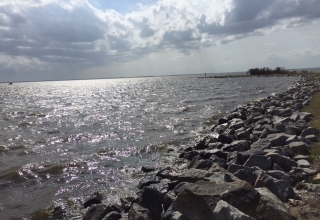
Here are questions that might be asked as a way to generate appropriate ideas:
* What have you already tried to do when seeking to solve this problem and what did you learn from these efforts?
* What actions have you taken that somehow reduced the scope or impact of the problem—even if this action was not intended to address this problem? What did you learn from this serendipitous impact?
* How might other people help you solve this problem—especially those who have not previously been involved with this problem? What other resources which have not previously been used might you direct to this problem?
* What would happen if you just ignored this problem? What would happen if you devoted all of your time and resources to solving this problem?
* What is the most unusual idea that you have about solving this problem? What solutions have you dreamed of or thought about at a moment when you were particularly tired or frustrated?
* What would you do if you had much more time to solve this problem?
* What would you do if you had very little time to solve this problem?
* If you were “king” or “queen” what solution(s) would you impose to solve this problem? If you were a “fool” or had nothing to lose in trying something out, what would you do in attempting to solve this problem?
Implementation: A critical moment often occurs when information in particular and even intentions are put to the test. Is the information on which the idea is based valid and useful? The “anvil of reality” is used to hammer on an idea to see if it holds up. The hammering can actually make the idea stronger – if the foundational information is valid. Misinformation and lies are often revealed when action is taken. Many years ago, John Dewey suggested that we needed to take action if we wish to find out what is really occurring in the world. More recently, psychologists such as Chris Argyris and Don Schon write about “action learning” and suggest that there is nothing wrong with making mistakes (for example, finding out that our information is not valid), as long as we learn from these mistakes and don’t keep repeating them.
Perhaps, misinformation and lies are not best confronted not by freezing in place, waiting somehow for the correct information to come forth or the desired outcomes to become clearer. There might not be some miraculous guide to arrive and lead us to the promised land. Rather, the lies and misinformation might best be confronted by taking some action and learning from it about what the nature of the “real” world and about outcomes that can realistically be expected to be accomplished given the knowledge and resources available to us at the present time.
Obviously, the primary purpose of implementation is not to learn about the world or gain greater clarity about our intentions. It is to solve a problem. It is about reducing the gap between a current state of affairs (domain of information) and a desired state of affairs (domain of intentions). We need to establish clear criteria for determining the level of success (building on the established target) as well as a realistic timeline for assessing the success. Given this assessment, modifications of the action that has been taken can be made—while learning also takes place.















